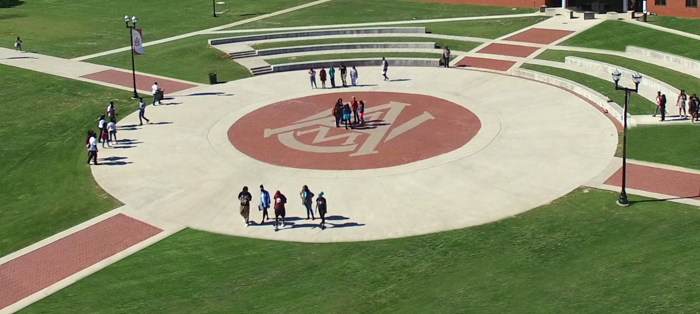Accommodations and Accessibility Services
Alabama A&M University is committed to providing equal access to all educational programs and ensuring compliance with applicable laws, including Section 504 of the Rehabilitation Act of 1973, and the applicable titles of the Americans with Disabilities Act (ADA) of 1990 for qualified students with disabilities.
For additional information, please feel free to visit the Office of Accommodations and Accessibility Services, located in the University Fitness & Recreation Center, or email us at aamu-aas@aamu.edu.
Differences Between K-12 and University Accommodations
Many of our students are accustomed to K-12 accommodations that are based on an IEP. The accommodations that we are able to offer at the university level can be very different from the ones they are used to because we are not governed by IDEA (the Individuals with Disabilities Education Act). Colleges and Universities operate under Section 504 of the Rehabilitation Act of 1973 and all applicable sections under the ADA (Americans with Disabilities Act) of 1990.
The other major fundamental difference is that in K-12, the school district attempts to identify students who many need extra assistance to succeed whereas at the college level, students are expected to self-identify and be their own advocates to they can acquire the skills needed to propagate their own success. Our role becomes one of a partner that assists the student rather than a leader making decisions for them.
What This Means For You
The Office of Accommodations and Accessibility Services at the Alabama A&M University is committed to creating as level a playing field as possible without creating fundamental alterations to the coursework required to graduate once students self-identify and reach out to our office for assistance. It is crucial to your success as a student that you initiate the conversation with our office as early as possible as once you have entered into our process, we can begin determining the best strategies and accommodations to help you succeed while enrolled at Alabama A&M University.
At a Glance
| Description | K-12 | University |
|---|---|---|
| Federal Laws |
|
|
| Purpose of Legislation |
|
|
| Eligibility for Services |
|
|
| Necessary Documentation |
|
|
| Receiving Services |
|
|
| Self-Advocacy |
Students with disabilities theoretically learn about their disability, the importance of self-advocacy, the accommodations they need, and how to be a competent self-advocate |
Students must be able to describe their disability, identify strengths and weaknesses, and identify any accommodations needed and how to be a competent self-advocate |
Contact Us

 Skip to content
Skip to content